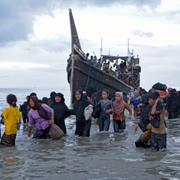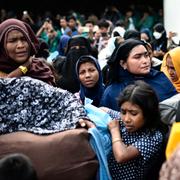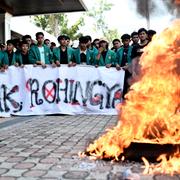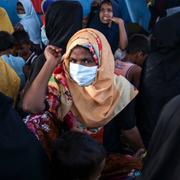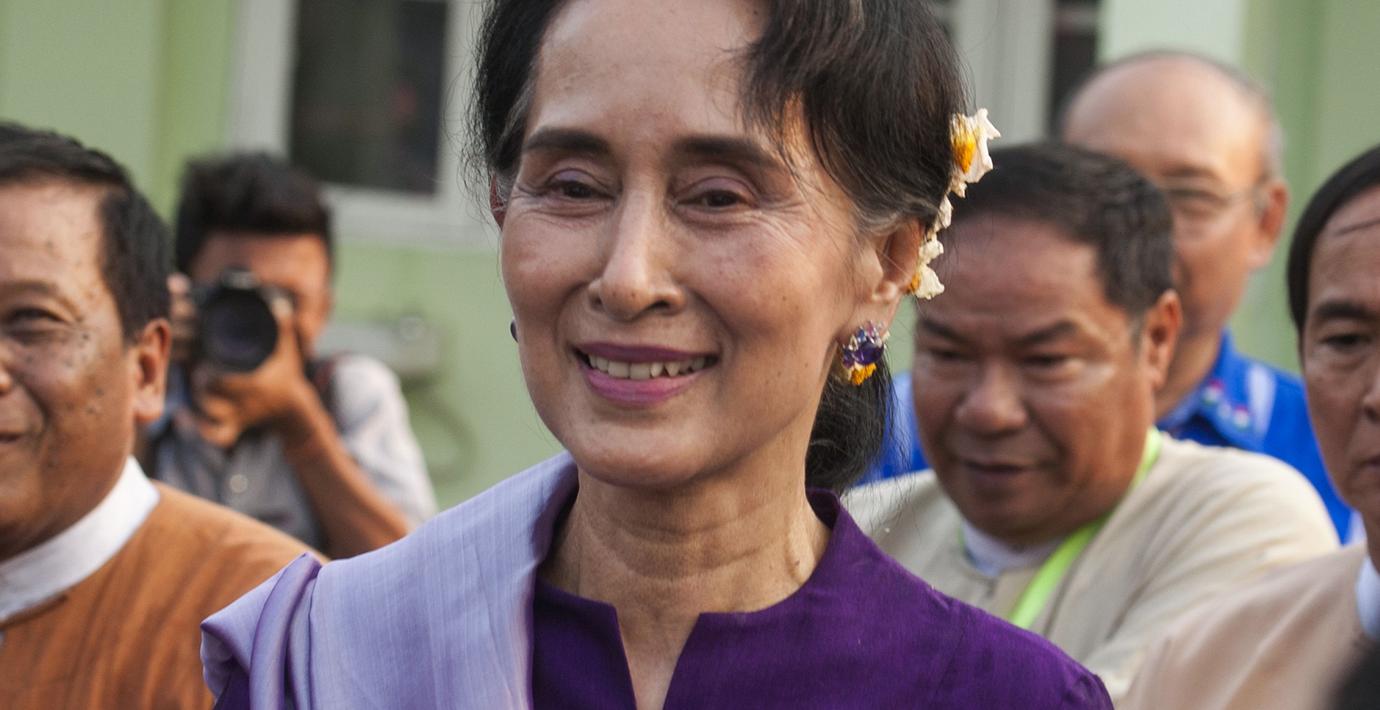
FN: Måste sluta kränka muslimer i Burma
FN:s människorättschef kritiserar de styrande i Burma för att utsätta den muslimska minoriteten rohingya för diskriminering och övergrepp som kan utgöra ett brott mot mänskligheten. Enligt Zeid Ra'ad al-Hussein handlar det bland annat om att människor förvägras medborgarskap, blir offer för tvångsarbete och sexuellt våld.
Sedan fredspristagaren Aung San Suu Kyis regering tog över makten i den forna militärdiktaturen har hon fått kritik för att inte göra något åt förtrycket mot folkgruppen.
bakgrund
Rohingya
Wikipedia (en)
The Rohingya people (/ˈroʊɪndʒə/, /ˈroʊhɪndʒə/, /ˈroʊɪŋjə/, or /ˈroʊhɪŋjə/), are Indo-Aryan peoples from the Rakhine State, Myanmar, who speak the Rohingya language. According to Rohingyas and some scholars, they are indigenous to Rakhine State, while other historians claim that they migrated to Myanmar from Bengal primarily during the period of British rule in Burma, and to a lesser extent, following Burmese independence in 1948 and the Bangladesh Liberation War in 1971.
Muslims have settled in Rakhine State (also known as Arakan) since the 16th century, although the number of Muslim settlers before British rule is unclear. After the first Anglo-Burmese War in 1826, the British annexed Arakan and encouraged migrations from Bengal to work as farm laborers. The Muslim population may have constituted 5% of Arakan's population by 1869, although estimates for earlier years give higher numbers. Successive British censuses of 1872 and 1911 recorded an increase in Muslim population from 58,255 to 178,647 in Akyab District. During World War II, the Arakan massacres in 1942 involved communal violence between British-armed V Force Rohingya recruits and Buddhist Rakhine people and the region became increasingly ethnically polarized.
In 1982, General Ne Win's government enacted the Burmese nationality law, which denied Rohingya citizenship. Since the 1990s, the term "Rohingya" has increased in usage among Rohingya communities.
As of 2013, about 1.3 million Rohingyas live in Myanmar. They reside mainly in the northern Rakhine townships, where they form 80–98% of the population. International media and human rights organizations have often described Rohingyas as one of the most persecuted of minorities in the world, while origin of that term with relation to the United Nations is still unclear.
Many Rohingyas have fled to ghettos and refugee camps in neighbouring Bangladesh and to areas along the border with Thailand. More than 100,000 Rohingyas in Myanmar continue to live in camps for internally displaced persons, not allowed by authorities to leave. Rohingyas have received international attention in the wake of 2012 Rakhine State riots, and more recently because of their attempted migration throughout Southeast Asia in the 2015 Rohingya refugee crisis.
Omni är politiskt obundna och oberoende. Vi strävar efter att ge fler perspektiv på nyheterna. Har du frågor eller synpunkter kring vår rapportering? Kontakta redaktionen
